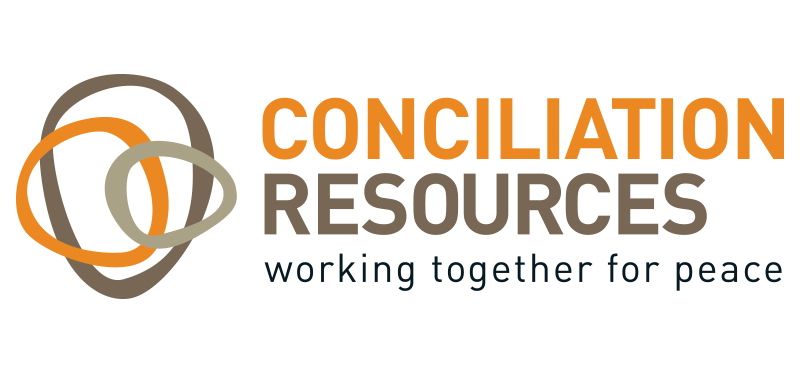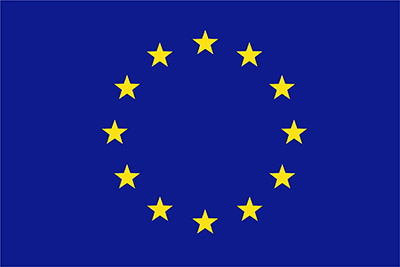
© 2021. ILLUSTRATION BY PEACE DIALOGUE NGO
Snap parliamentary elections were held in Armenia on June 20, 2021 aimed at overcoming the internal political crisis caused by the defeat in the 44-day Armenian-Azerbaijani war, which started on September 27, 2020. On November 10, 2020, the Prime Minister of Armenia Nikol Pashinyan, the President of Azerbaijan Ilham Aliev, and the President of Russia Vladimir Putin signed a trilateral ceasefire agreement. As a result, the control over a part of Nagorno Karabakh and 7 adjacent regions which had been under the control of Armenian armed forces for more than a quarter of a century, passed to Azerbaijan. Russian peacekeepers were then deployed to those parts of Nagorno Karabakh still under Armenian control at the time of the ceasefire.
In some Armenian political and public circles, the signing of the document by Pashinyan qualified as an act of betrayal and raised a large wave of discontent. Yet despite the fact that snap elections were called after months of protests demanding the resignation of Pashinyan and the government, the Pashinyan-led Civil Contract party won a clear victory over political opponents, with more than double the vote of the oppositional bloc ‘Armenia’ led by the second president of Armenia Robert Kocharyan, which came in second place. Third place went to the ‘I Have Honor’ bloc formed by the Republican Party of Armenia, associated with the third president Serzh Sargsyan and the Homeland party of the former head of the Armenian National Security Service, Arthur Vanetsyan. Although with a total vote of 5.23% ‘I Have Honor’ did not pass the legislative threshold for blocs (7%), as the force with the third-largest number of votes, as per Armenian electoral law it obtained representation in the parliament. The remaining 23 political parties and blocs participating in the snap elections also failed to cross the threshold, and are not represented in the new parliament.
According to local and international observers, the election largely met international standards. Nevertheless the ‘Armenia’ and ‘I Have Honor’ blocs claimed that mass violations had been registered during the elections. However, there were numerous complaints against the aforementioned blocs, too, and many of their supporters, including heads of the local governments and candidates to the Parliament have been detained or arrested, specifically for abuse of power, frauds and vote-buying. Many of them were detained by the police at the time of monetary exchange and the Court has approved the prosecutors’ petitions for detention as a measure of restraint. Along with two more political parties the ‘Armenia’ and ‘I Have Honor’ blocs initiated joint consultations and appealed the election results to the Constitutional Court.
Nevertheless, at least for the near future, it will be these three political forces that have entered the parliament as a result of the election that will have the main impact on political developments in Armenia.
Taking into consideration the political landscape in the country after the snap parliamentary elections, it is important to understand what are the possible ways of overcoming the obstacles in the fields of security, human rights, and democracy that Armenia is facing as a result of the 44-day war.
To this end, Peace Dialogue NGO studied the election programs of the afore-mentioned parties and blocs, the statements made by the representatives of these forces during the campaign, interviews, the ideas and thoughts voiced during the political debates, in order to find out what the visions of these forces are for overcoming the crisis and possible ways to resolve the problems.
Due to the strategic priorities of Peace Dialogue NGO, the study was conducted in a limited number of areas:
- Final settlement of the Karabakh conflict;
- Security and defense-related reforms;
- Foreign relations;
- Human rights and democracy.
To make the study more relevant, the organization has compiled a list of questions related to each area under consideration to determine the extent to which their answers are included in the program provisions of those political forces.
 FINAL SETTLEMENT OF THE KARABAKH CONFLICT
FINAL SETTLEMENT OF THE KARABAKH CONFLICT
During the study we tried to find answers to the following questions.
- What will the political status of Nagorno Karabakh be? What are the positions on ensuring the security of the population after the termination of the Russian peacekeeping mandate in 2025?
- Will the mandate of the Russian peacekeepers be clarified in terms of content and rules of engagement?
- What are the ways to resolve the problems related to the return of captives, prisoners of war, hostages and other detainees?
- What is the status of the citizens displaced from Artsakh, who have taken refuge in the Republic of Armenia? What are the obligations of the state towards them?
1․ What will the political status of Nagorno Karabakh be? What are the positions on ensuring the security of the people there after the termination of the Russian peacekeeping mandate in 2025?
Without specifying timeframes, all three parliamentary forces connect the final settlement of the Nagorno-Karabakh conflict with the OSCE Minsk Group.
The ‘Armenia’ (page 4, line 18) and ‘I Have Honor’ (page 21, line 16) blocs believe that the right of the people of Nagorno Karabakh (Artsakh) to self-determination should be considered as a basis for resolution of the conflict. The Civil Contract (page 8, line 29) party also takes the right of peoples to self-determination as a basis, guided by the principle of remedial secession, while insisting that they will continue to take an active part in the OSCE processes.
Since after the 44-day war Azerbaijan took control over parts of the NKAO that were under control of the Armenian forces after the First Karabakh war since 1994 and considered in Armenia to be occupied parts of the NKR/Artsakh, all three political entities are inclined to de-occupy those territories through peaceful negotiations. Alen Simonyan (2։29։37), a representative of the Civil Contract party, confirmed this point of view of their party in a televised debate during the election campaign.
The ‘I Have Honor’ bloc notes that the actions of Azerbaijan do not contribute to the normal course of the negotiation process, and that it is necessary to return Azerbaijan to the negotiating table (2։24։59).
2. Will the mandate of the Russian peacekeepers be clarified in terms of content and rules of engagement?
On this issue, the Civil Contract (page 9, line 13) and ‘I Have Honor’ (page 23, line 31) bloc affirm that it is necessary to strive for the long-term deployment of Russian peacekeepers in the Nagorno Karabakh, which will ensure the security of people there. At the same time, these political forces do not have a position on the mandate of the peacekeepers.
The ‘I Have Honor’ bloc also notes that Armenia should support the establishment of the status of Russian peacekeepers under the OSCE mandate (as representatives of the OSCE Minsk Group) (page 23, line 34).
The ‘Armenia’ bloc did not address this issue.
3․ What are the ways to resolve the problems related to the return of captives, prisoners of war, hostages and other detainees?
Of the political forces, only the ‘Armenia’ (page 4, line 14) bloc addresses this issue in its pre-election program, without specifying the mechanisms to achieve it. Nevertheless, in various speeches the members of the Civil Contract party Alen Simonyan (36։49) and Prime Minister-designate Nikol Pashinyan (1։03։55) have stated that they plan to resolve the issue through international pressure, intensification of international processes, as well as cooperation with international partners. According to them it is only a matter of time.
Tigran Abrahamyan (31։33), a member of the ‘I Have Honor’ bloc, noted that the solution of this issue largely depends on the increase of the fighting efficiency of the Armenian army. In that case, the enemy will show restraint, which will have a significant impact on the return of the captives.
4․ What is the status of the citizens displaced from the Nagorno Karabakh, who have taken refuge in Armenia? What are the obligations of the state towards them?
Without specifying the status of the displaced citizens from Nagorno Karabakh, the Civil Contract (page 8, line 37) states that the solution of the social problems of the group will remain in their focus.
‘Armenia’ (page 4, line 23) and ‘I Have Honor’ (page 23, line 36) blocs refer to them as refugees.
The ‘Armenia’ bloc states that they should be provided with apartments and dignified living conditions, and should be assisted in their return to former settlements as much as possible.
The ‘I Have Honor’ bloc believes that Armenia should support their return to their places of residence, providing good living conditions and security guarantees.
 SECURITY AND DEFENSE-RELATED REFORMS
SECURITY AND DEFENSE-RELATED REFORMS
Peace Dialogue made an attempt to find a reference to the following area in the pre-election programs and public speeches of the political forces that entered the National Assembly.
- What is the vision of ensuring state security and modernizing the defense sector (army)?
- How will the issues related to the modernization of weaponry be solved?
- What are the conditions needed for opening the borders? What would be the advantages and possible threats?
- How will the security of the population of the villages bordering Azerbaijan be ensured?
- What will the relations be between the Armenia and Russia, between Nagorno Karabakh and Russia, between the Armenia and Azerbaijan, as well as between Armenia and Turkey?
- How will cyber security issues be addressed?
- What solutions are offered to demographic issues?
1․ What is the vision of the political forces to ensure the security of the state, the modernization of the defense sector, particularly the army?
The Civil Contract (page 13, line 12)party states in its program that they will introduce a unified automated system of management of the armed forces and develop new combat formations. During one of the public debates, party member Arusyak Julhakyan (9։30) noted that it was necessary to switch to a professional army, and another member of the party, Maria Karapetyan (16։55), claimed that the service types, terms, as well as places of service would be reviewed.
The ‘Armenia’ (page 6, line 17)bloc claims that a new strategy for national security, a new military doctrine, new concepts for the development of the military-industrial system and the Nation-Army concept shall be adopted and applied. The idea of the concept is that all branches of the government, as well as political bodies and civil society organizations understand the level of their relation to the army and are deeply involved in national defense.
The ‘I Have Honor’ (page 17, line 21) bloc states in its program that it is necessary to create such a security-defense system that will solve the greatest number of problems possible with limited resources, including human resource related issues. Other details, however, are not specified in the program.
2․ Problems related to the modernization of weaponry
Of the three forces in the parliament, only Civil Contract (page 13, line 20) addresses the issues related to the modernization of weaponry in its pre-election program, noting that they will continue the process of modernization of weaponry and military equipment, acquisition of new weapons, first of all with the support of Russia, which they call a strategic ally of Armenia. According to the party, the armed forces will be equipped with air defense systems, drones, as well as other robotic and remote-controlled means. The armed forces will be equipped with high-precision long-range missiles, modern radio-electronics, intelligence and other means of communication.
The other two forces did not address this issue in their election programs or public speeches.
3. What are the conditions needed for opening the borders? What would be the advantages and potential threats?
This issue was not included in the pre-election programs of the forces that entered the parliament.
During the discussions initiated on TV or in the media, it was regularly said that the region would be unblocked (20:54). However, no constructive speech or statement was made on public platforms about the conditions, possible dangers and advantages.
4․ How will the security of the population of the villages bordering Azerbaijan be implemented?
Civil Contract did not refer to this issue in the pre-election programs, but in a debate organized during the pre-election campaign on the public TV channel, Civil Contract representative Arusyak Julhakyan (9:40) noted that the border protection should be carried out not by conscripts but by border troops.
The ‘Armenia’ and ‘I Have Honor’ blocs did not address this issue in their programs.
5․ What will the relations be between Armenia and Russia, between Nagorno Karabakh and Russia, between Armenia and Azerbaijan, as well as Armenia and Turkey?
Civil Contract (page 4, line 31) states in its program that it is ready to deepen relations with Russia in all directions. According to that party, they are also ready for relations with Turkey without preconditions, but only after constructive steps taken by the latter.
The ‘I Have Honor’ (page 19, line 17)bloc considers that relations with Russia in the security sphere need to be improved. The essence of this improvement, however, is not clarified. The bloc also states that the peaceful coexistence of Armenian and Azerbaijani peoples and the sustainable development of the region are possible, but will be real only if the Azerbaijani authorities renounce their maximalism, anti-Armenian attitude and blackmail policy (page 21, line 25).
As for relations with Turkey, according to the ‘I Have Honor’ (page 21, line 33) the behavior of the current Turkish political leadership does not give rise to optimism in the context of Armenian-Turkish relations. However, ‘I Have Honor’ states that it is necessary to develop approaches to ensure direct contact with Turkish society.
The ‘Armenia’ (page 3, line 27) bloc has stated the need to resume relations with Russia in all directions, noting that it supports the idea of peace, communications and open borders in the South Caucasus, finding mutually beneficial solutions with allied states, based on our national and state interests.
6․ How will digital cyber security issues be addressed?
The program of the Civil Contract (page 29, line 36)
party states that by 2023 it is planned to establish a “National Cyber Security Excellence Center”, which will improve the cyber security of the state systems and the protection of personal data.
The ‘Armenia’ (page 13, line 8)bloc plans to create an effective cyber security system through state-private sector cooperation.
The ‘I Have Honor’ bloc did not address this issue.
7․ What solutions are offered to solve demographic problems?
All three forces state that they are going to give a boost to repatriation, without referring to any specific program aimed at it.
Increasing social assistance to families is included in the election programs of all three forces. Civil Contract (page 62, line 14) plans to implement this by providing 50,000 AMD monthly (approximately 100 US Dollars) financial support to the third and any following child born to a family, up to the age of 6.
The ‘I Have Honor’ (page 24, line 20)bloc states that a program should be developed, which will provide special guarantees for the definition of labor and social rights guarantees for single women, one-time and continuous support for the birth of the first and third children, and acquiring their own apartment.
The ‘Armenia’ bloc does not offer concrete solutions to the problem.
 FOREIGN RELATIONS
FOREIGN RELATIONS
The following areas are studied:
- How to reduce the negative impact of the problems caused by the aggravation of NATO-Russia relations on Armenia’s security?
- To what extent are the political interests of different states, cooperation in the security sphere, etc., taken into account in the process of foreign policy development?
- What steps will be taken to make Armenia an attractive partner? What are the international-regional integration processes in which Armenia can be involved on a mutually beneficial basis?
- What are the approaches to building relations with the world and the new agenda of Armenia in foreign relations?
1․ How to reduce the negative impact of the problems caused by the aggravation of NATO-Russia relations on Armenia’s security?
Of all the political forces that entered the National Assembly, only Civil Contract mentioned the need to develop relations with NATO (page 6, line 44). It will pursue the continuation of political dialogue with NATO and the coherent implementation of the Individual Partnership Action Plan.
2․ To what extent are the political interests of different countries and cooperation in the security sphere taken into account in the process of foreign policy development?
All three forces note that bilateral relations with the Islamic Republic of Iran should be free from the influence of third countries.
In his speech, Nikol Pashinyan (26։44), the candidate for the post of Prime Minister of the Civil Contract party, noted that he saw an opportunity for cooperation in the security sphere with the Islamic Republic of Iran. Civil Contract also mentioned the need to deepen cooperation with Georgia.
3․ What steps will be taken to make Armenia an attractive partner? What are the international-regional integration processes in which Armenia can be involved on a mutually beneficial basis?
All three parliamentary forces state that they plan to initiate relations with different countries.
Referring to this issue, the Civil Contract (page 5, line 6) and ‘Armenia’ (page 5, line 28) bloc noted that Armenia should pay special attention to the construction of the Persian Gulf-Black Sea transport corridor.
Civil Contractoffers to develop a new brand and marketing materials in Armenia in order to increase Armenia’s recognition and advantageous positioning to present itself in the target markets. In this context, the party’s program also speaks about dialogue on EU visa liberalization for Armenian citizens. The implementation process of the Armenia-EU Comprehensive Enhanced Partnership Agreement, which entered into force in March 2021, will be completed by 2026 (page 5, line 4).
The ‘Armenia’ (page 6, line 5) bloc states that they plan to make efforts to build a Georgia-Armenia-Iran power platform, and will support the construction of a Georgia-Russia inter-tunnel, and the opening of a transport link between Georgia and Abkhazia. According to them, the final ratification of the air transportation agreement with the EU is being discussed, and that all these ideas should be interconnected with the Chinese government’s ”One Belt, One Road” initiative. The representatives of the bloc also noted that they will pursue the realization of Armenia’s “rights deriving from the status of a landlocked country.”
The ‘I Have Honor’ (page 20, line 12) bloc believes that the trilateral cooperation between Armenia and Iran-Greece should be deepened. Armenia should initiate Armenia-Iran-Russia stable cooperation scheme.
4․ What are the approaches to building relations with the outside world and the new agenda of Armenia in foreign relations?
The forces that entered the National Assembly did not address this issue in their programs.
 HUMAN RIGHTS AND DEMOCRACY
HUMAN RIGHTS AND DEMOCRACY
We made an attempt to find the answers to the following questions:
- What is the place of human rights and democratic values in the construction of the security system of the Republic of Armenia?
- What are the ways to reform the judicial system?
- What steps will political forces take to protect human rights?
- What mechanisms will be put in place to stop the spread of hate speech?
- Will human rights violations of the 44-day war be investigated?
- What effective steps are planned to ensure the security of the civilian population in emergency or war situations?
- What steps are going to be taken to seize the illegal weapons found among the citizens as a result of the 44-day war?
1․ What is the place of human rights and democratic values in the construction of the security system of the Republic of Armenia?
In this regard, Civil Contract (page 14, line 16) promises to improve democratic-civilian control over the armed forces. They will promote discipline, the protection of human rights in the armed forces, and try to exclude cases of non-statutory relations.
There is no reference to these issues in the pre-election programs of ‘Armenia’ and ‘I Have Honor’ blocs.
2. What are the ways to reform the judicial system?
Civil Contract (page 97, line 2) party noted that they will ensure the entry of independent and ethical judges into the judiciary, will propose the creation of the Supreme Court, and will improve the constitutional basis for the examination of judges’ ethics. They will develop the institutes of specialized courts and judges specialized in individual cases through the sub-specialization of Anti-Corruption Court and judges exercising judicial control over pre-trial proceedings.
The ‘Armenia’ (page 7, line 17) bloc believes that based on the principle of the rule of law, new administrative and pre-judicial structures should be introduced to ensure the direct exercise of basic human rights, political pressure on the judiciary should be eliminated, and the practice of depriving a person of liberty for political reasons should be eliminated. According to the bloc, it is necessary to strengthen both the external and internal independence of the investigative bodies and the Prosecutor’s Office, to refrain from any interference, political instructions, orders or pressure.
The ‘I Have Honor’ (page 12, line 5) bloc thinks that the internal and external independence of the prosecutor’s office and investigative bodies should be ensured. They point out that it is necessary to invest and apply extrajudicial tools for the protection of human rights, i.e. tools delivered without legal authority, not forming a valid part of regular legal proceedings.
3․ What steps will be taken to protect human rights?
Civil Contract (page 98, line 9)states that they will be attentive to the protection of human rights, especially in the case of vulnerable groups.
The ‘I Have Honor’ (page 36, line 32) bloc states that it is necessary to carry out comprehensive educational reforms aimed at raising the level of legal awareness of the population, and developing respect for human rights.
The ‘Armenia’ bloc did not refer to the protection of human rights and the development of the institutions of democracy in its pre-election programs and speeches. In one of his public speeches, however, Robert Kocharyan promised to “regulate by law” the activities of human rights organizations operating with the support from foreign donors․ “It is necessary to either ban offices of Soros or set strict restrictions on their operation”. According to Kocharyan, firstly there will be legislation, followed by tight restrictions or a ban on the operation of those organizations. “They will either be banned or will operate as international agents under strict control,” Kocharyan said and recalled that Western countries have set strict restrictions on the operation of organizations funded by other countries.
4․ What mechanisms will be put in place to stop the spread of hate speech?
Civil Contract (page 98, line 2) addresses this issue in its program, noting that they will continue to improve legislation in the fight against violence, hatred, enmity, discrimination in order to protect democracy and prevent cases of abuse of rights.
The other forces did not address this issue.
5․ Will human rights violations of the 44-day war be investigated?
Gegham Nazaryan (52:53), representing the ‘Armenia’ bloc, said that the Armenian Nuremberg trial should take place, it should be investigated what the military and politicians did, so that the society has an opportunity to understand who did what and what should not have been done.
Nevertheless, no political force has addressed this issue from the human rights perspective.
6․ What effective steps are planned to ensure the security of the civilian population in emergency or war situations?
There was no reference to this issue.
7․ What steps are going to be taken to seize the illegal weapons found among the citizens as a result of the 44-day war?
The political forces did not address this issue.
Author: Anush Harutyunyan
Translation: Lusine Poghosyan
The research was implemented within the framework of the project Open Narratives of Peace Dialogue NGO in coordination with Conciliation Resources organization with the financial support of the European Union.





